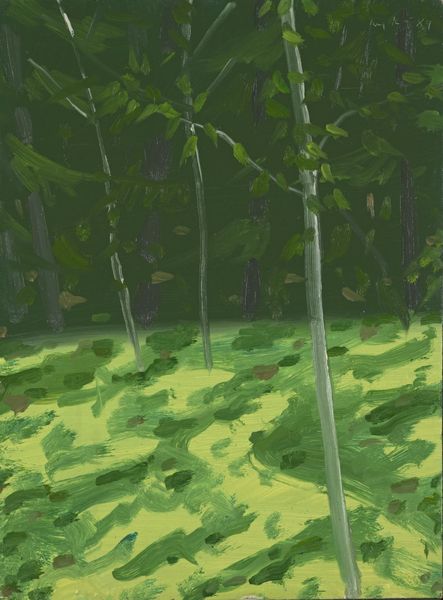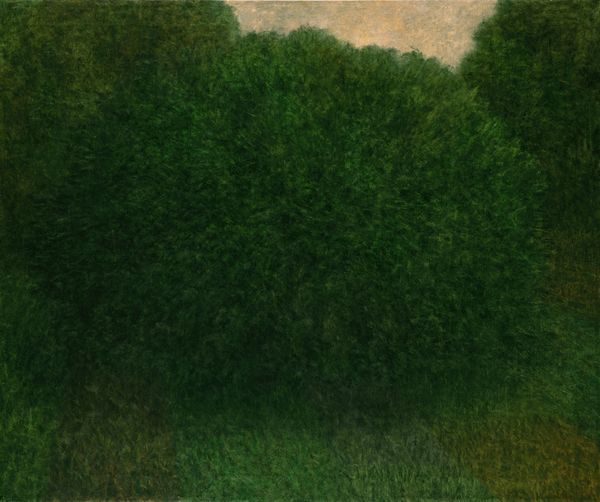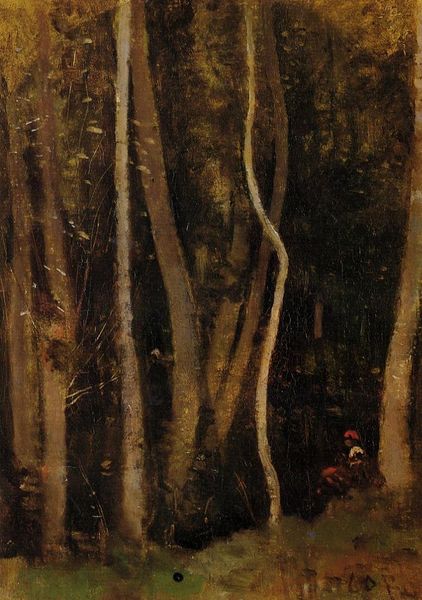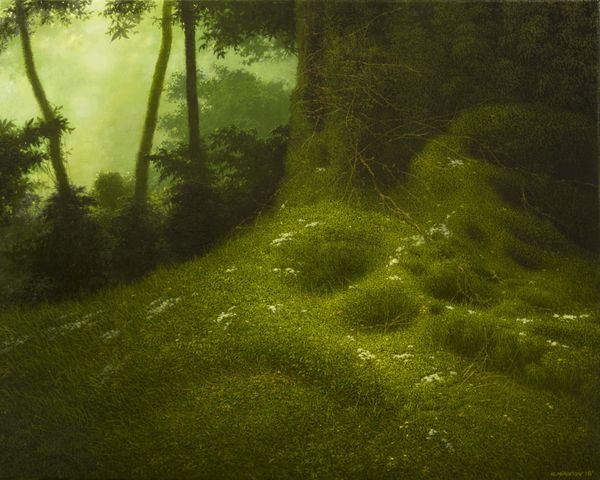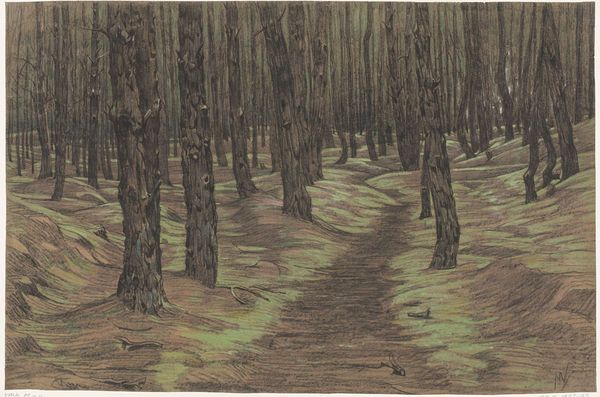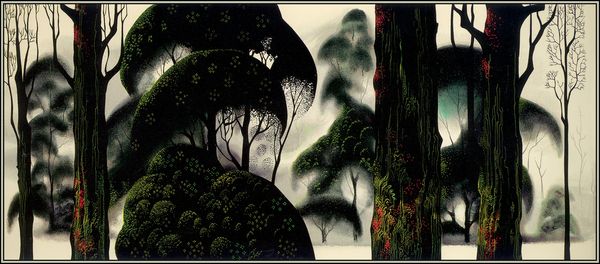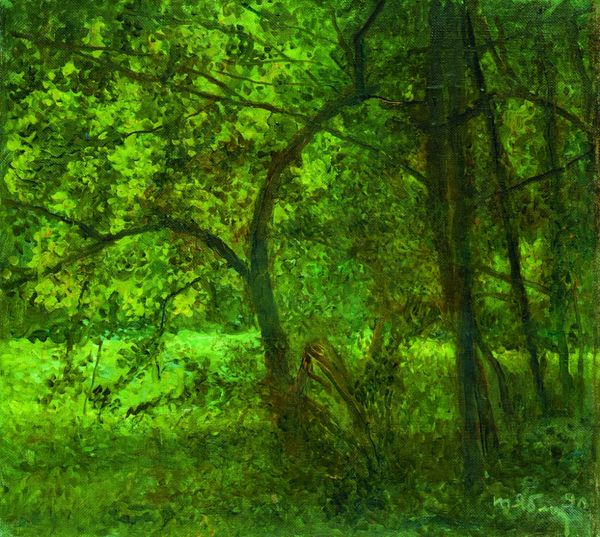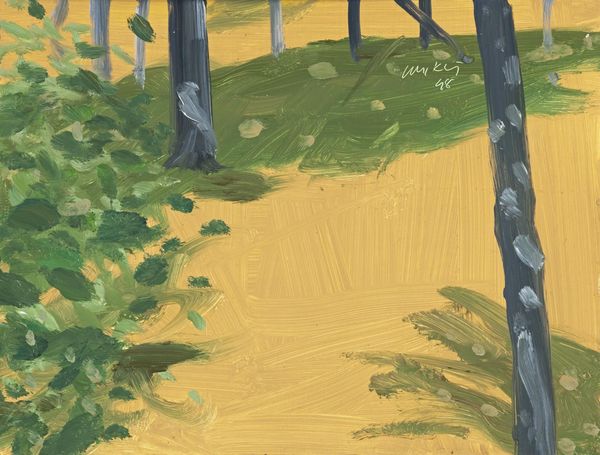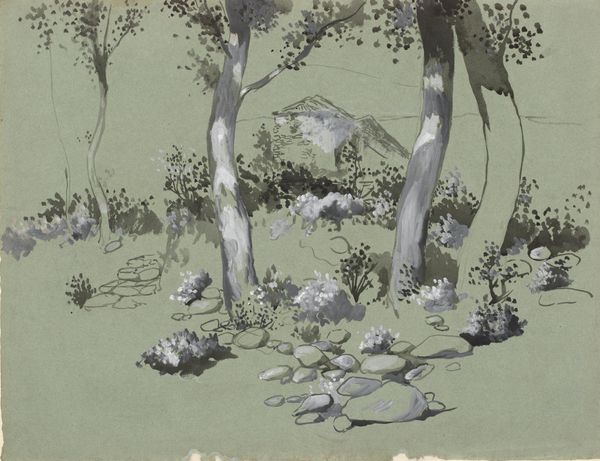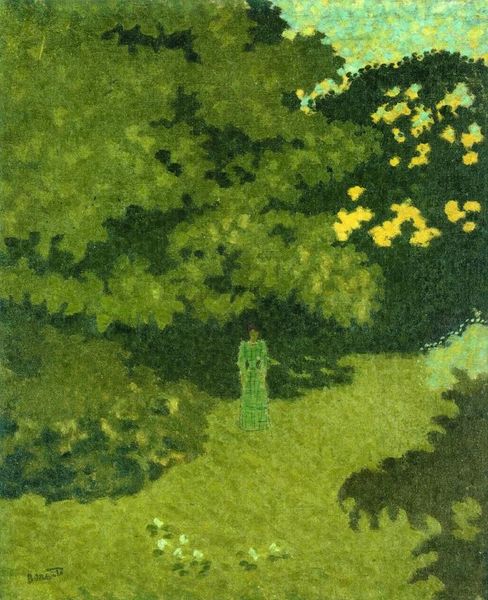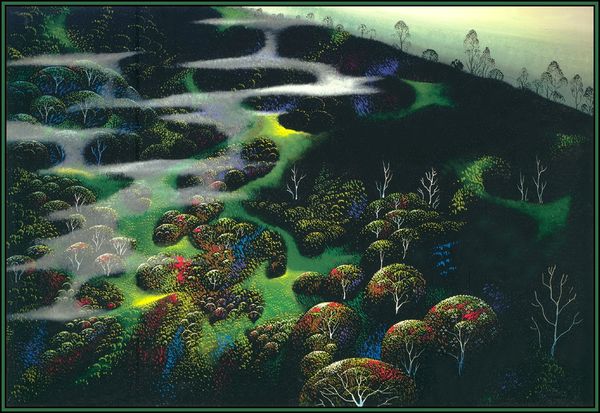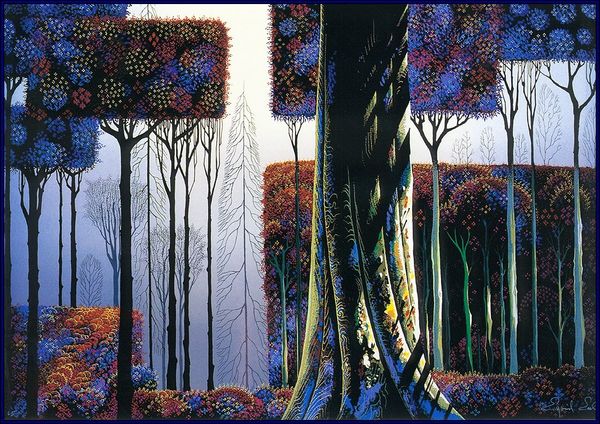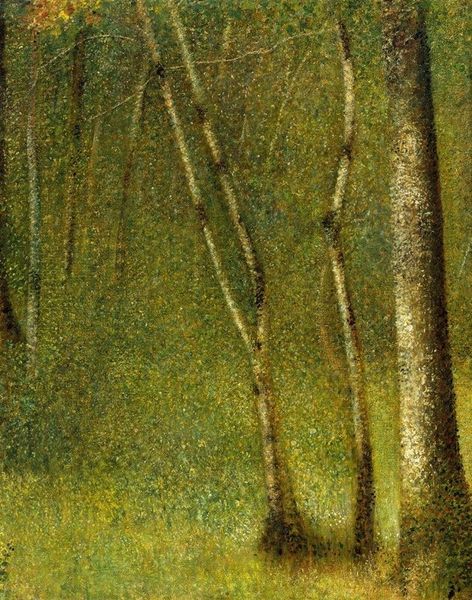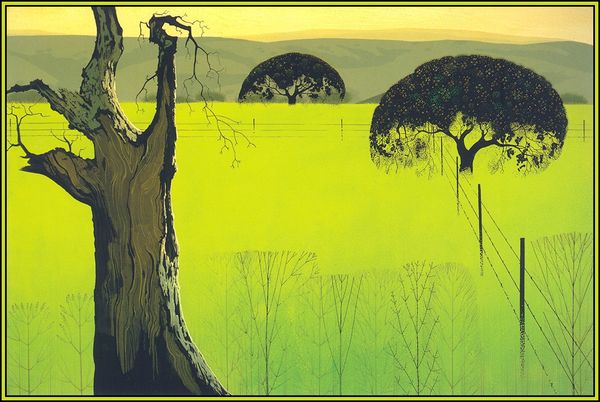
tempera, painting
#
tempera
#
painting
#
asian-art
#
landscape
#
japan
#
realism
Dimensions: 74 1/2 x 93 1/2 in. (189.23 x 237.49 cm) (image)
Copyright: No Copyright - United States
Katayama Bokuyō made this monumental painting of a forest without a known date using ink and color on silk. Look at that incredible green, it's almost pulsating with life! Up close, you can see how Bokuyō layered the paint to create a textured surface. The leaves underfoot are a mass of small, distinct brushstrokes. There’s something meditative about the repetition. Notice how Bokuyō uses subtle color shifts to create depth and shadow. The tree trunks have a ghostly, almost surreal quality. I love how these soft, gray-blue hues contrast with the vivid green foliage, it's like the whole forest is breathing. In the bottom corner, notice the sharp, angular forms of the young fir tree, a small beacon in this forest dreamscape. Thinking about someone like Lois Dodd, Bokuyō explores similar territory, examining nature closely. It's a reminder that art isn't just about what we see, but how we see it, the act of observation, and the translation of that into pigment.
Comments
minneapolisinstituteofart about 2 years ago
⋮
At the young age of twenty-seven, Katayama Bokuyō was awarded the grand prize at Japan's annual Imperial Juried Exhibition in 1927. The following year, he submitted this painting showing a weasel nearly hidden in a tangled bed of flowering fishmint (dokudami) deep in the forest. The judges were so impressed that he was given the status of mukansa, literally "non-vetted," meaning that henceforth any painting he submitted to the annual exhibition would be automatically included. Bokuyō championed a style of painting collectively known as nihon-ga (literally, Japanese style painting) to distinguish it from Western-style oil painting, which was gaining popularity in Japan. Nihon-ga artists used traditional subjects, formats and materials, but their approach often reveals some influence from the West. Here the logical recession into deep space and subtle color variations to suggest atmospheric depth are the result of Bokuyō's exposure to Western art. Nevertheless, the dramatically tipped ground-plain, reduction of motifs, and precisely applied mineral pigments are elements of traditional painting.
Join the conversation
Join millions of artists and users on Artera today and experience the ultimate creative platform.
